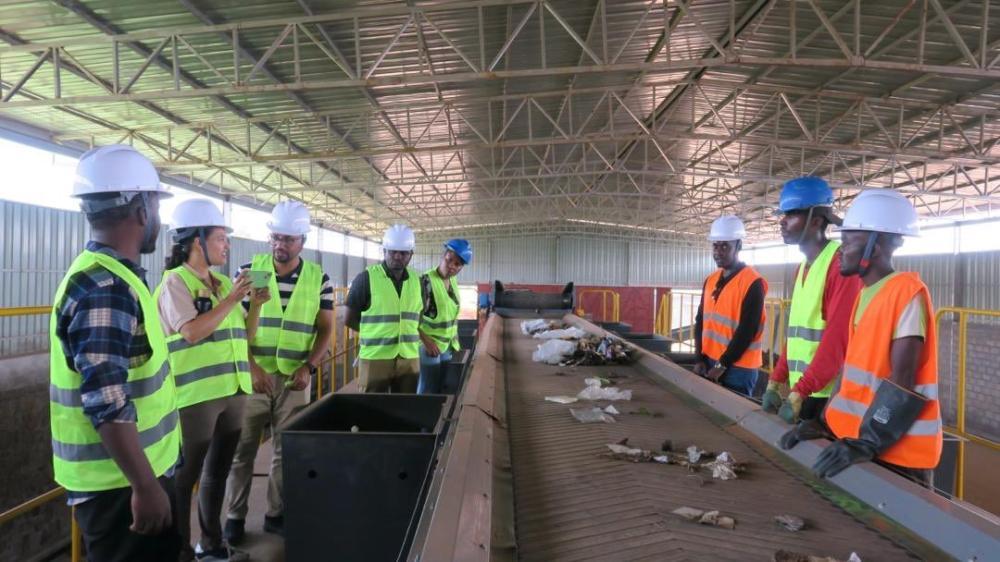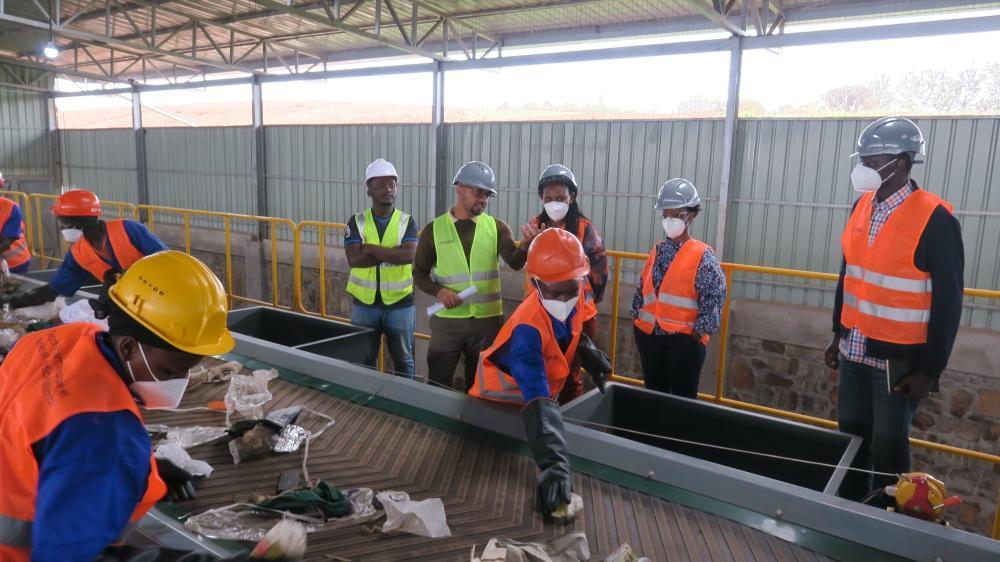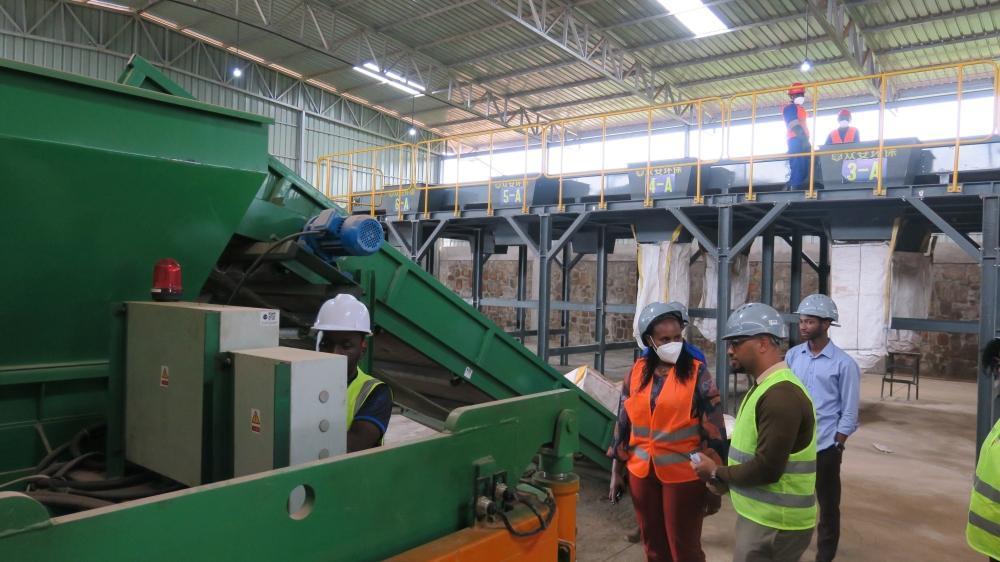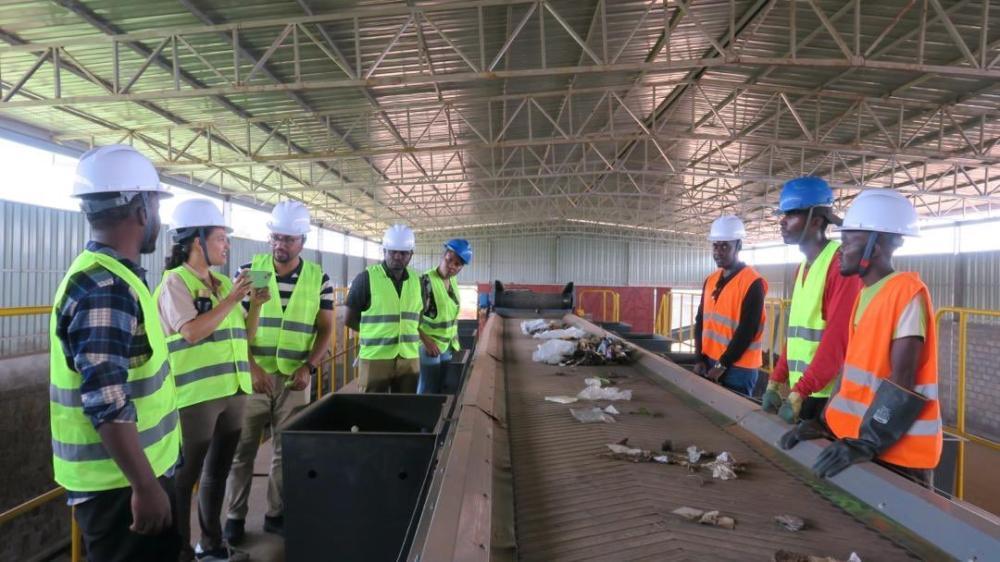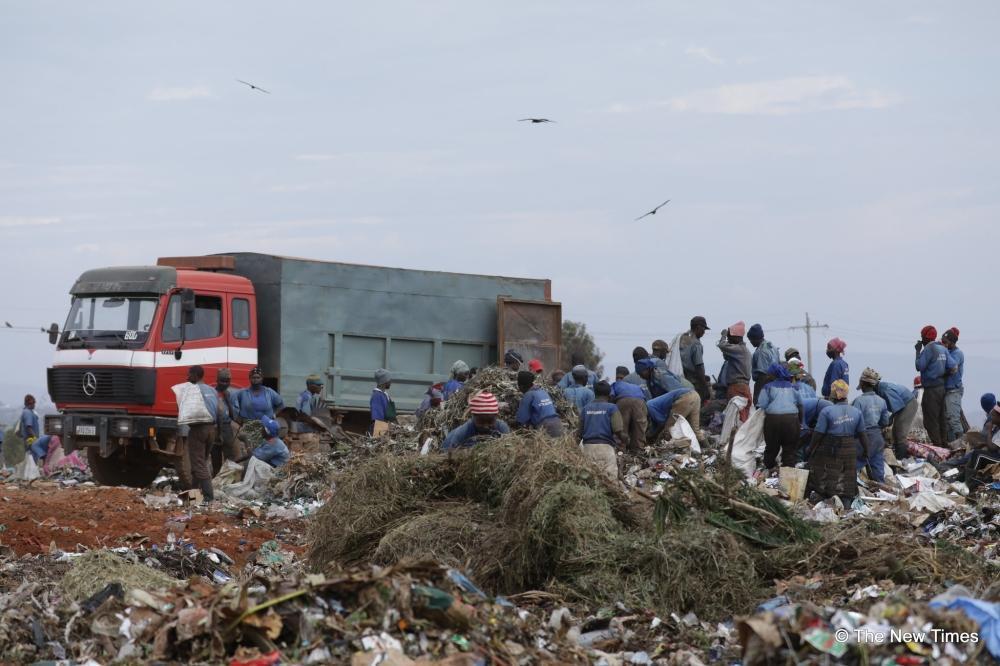Africa-Press – Rwanda. With the aim of easing the longstanding sanitation challenges, the Water and Sanitation Corporation (WASAC) has embarked on an ambitious initiative to rebuild the sewage facility in Nduba Sector, Gasabo District.
This is in response to inadequate sanitation infrastructure which poses health risks and environmental concerns to the community living in the area. End last year, lawmakers urged for a hastened relocation of households residing near the landfill, over health grounds.
Members of the Parliament’s Public Accounts Committee (PAC) on April 29 directed questions to the management of WASAC which is in charge of operations regarding the new sewage facility, with Gisele Umuhumuza, the Managing Director of WASAC, explaining plans for the expansion of the facility. Umuhumuza told lawmakers that a feasibility study had already been concluded.
Dominique Murekezi, the acting director in charge of water and sanitation development at WASAC, said that the upcoming construction will adhere to modern landfill standards, integrating innovative practices for waste management.
“This modern landfill concept involves a thorough segregation process, wherein certain waste materials will be repurposed to enrich soil fertility, while others will be allocated for potential recycling or repurposing in equipment manufacturing,” he added.
Revolutionizing waste management methods
Murekezi highlighted the significant shift in approach, stating, “Previously, waste collection merely aimed at preventing environmental degradation.
“Now, we are revolutionizing our methods by segregating waste for beneficial reuse. Additionally, partnering with a water purification company ensures that rainwater, previously causing erosion and contaminating neighboring communities, will be cleansed for practical use.”
He underscored the multifaceted benefits, affirming that with the implementation of water purification measures and the creation of employment opportunities, the risks confronting the Nduba community will diminish significantly.
During the tour, officials visited the sorting and separation facility, the bio-waste facility and weighbridge.
Marcelline Kayitesi, the Director General in charge of water and sanitation at the Ministry of Infrastructure (MINIFRA), emphasized the significant impact of the initiative to rebuild the Nduba facility. She highlighted how this effort best will facilitate the daily management of waste, contrasting with previous challenges such as air pollution and the prevalence of flies in the area, which stemmed from outdated methods reliant on soil and compaction.
Kayitesi emphasized that through the collaborative efforts of WASAC, MINIFRA, the City of Kigali, and the Ministry of Environment, this initiative promises to be a sustainable solution.
“It will establish a sanitary landfill with channeled water pipes, ensuring effective waste management. Additionally, this will be done through the implementation of advanced recycling technology.”
“Implementing this initiative in Nduba will have a positive impact on the community by reducing health-related challenges. Moreover, the project will create job opportunities, benefiting the local residents,” she added.
Officials during a tour of the Waste to Resource Project Infrastructure at Nduba Landfill, in March. Courtesy
For More News And Analysis About Rwanda Follow Africa-Press

